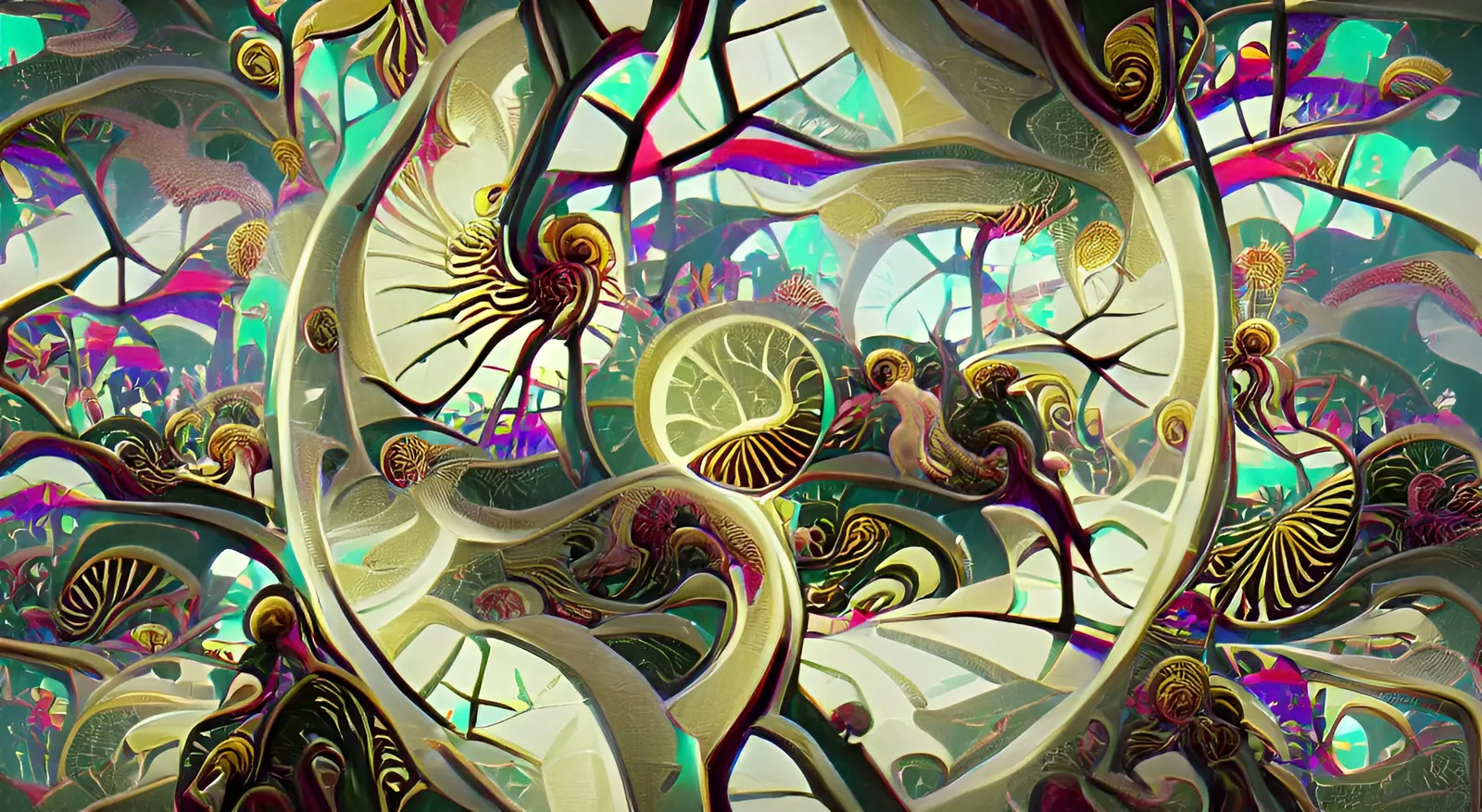When we try to get through a period of unstructured time via strategies then the unforeseen consequences of this is that we create ‘the operator of the strategy’, which is to say, ‘the controller’. Controlling always creates the controller – it’s a kind of hollow game. It’s a hollow game we play all the time! The controller feels the need to control and this need can either be understood in terms of ‘obtaining a valuable goal’ or ‘avoiding a dangerous outcome’. Whichever way we understand this, our controlling (or our attempt at it) is what creates and sustains the game, and it is the game that creates ‘the controller’…
We can apply this to the scenario where we are trying to get through a large block of unstructured time and are hoping to find some strategy by which we might do this. As soon as we start seeing the unstructured time as ‘a problem that needs to be solved’ we create the problem-solver who needs to solve the problem, the problem solver who is obliged to solve the problem, the problem-solver who is not free not to solve the problem.
This wouldn’t be too bad (perhaps) if the problem were genuinely soluble but the point is that it isn’t. It’s an insoluble problem, a totally insoluble problem. No solution exists and never can! What we’re trying to do is traverse the period of unstructured time via a strategy, via a rule-based procedure. Expressing things like this gives the game away – if the time were structured then we would be able to find a formula to enable us to negotiate it. Structure means rules, after all. The space in question isn’t structured however and that’s the whole point – there’s no key there for us to find, there’s no path for us to follow.
There’s no way to ‘crack’ unstructured space, there’s no way to hack it. In order to hack something we first have to work out what the internal structure is, we have to figure out what the correct angle to take his, etc, but if there isn’t any structure then there is no angle to find and if there is no angle to find and so we’re never going get the advantage that we’re looking for. Something that isn’t based on rules can’t be cracked. What this means in practise is that when we approach time in this way then it’s going to seem like a huge problem to us and we’re going to get anxious about it. This is what Eric Berne calls ‘the problem of unstructured time’; needless to say, most of us don’t have anxiety in relation to how we’re going to get through the day and this can be the case for two very different reasons.
One reason would be that we are not approaching the unstructured time as a problem and so – on this account – it doesn’t seem like one (unstructured time isn’t a problem if we’re not trying to crack it, if it never occurs to us to try to crack it). The other reason – which is undoubtedly the case for most of us – is that we have managed to turn unstructured time into a mere routine (which is to say, a straightforward task or puzzle that can be completed in easy steps). According to Eric Berne, this is what almost all of us do – we put together a route map of made up of habits, routines, pastimes, rituals and so on and in this way we are avoiding the problem rather than honestly tackling it.
We’re avoiding the original problem rather than tackling it because unstructured time can never be turned into a structure or system. What we can do however is to replace it with a logical system, so that the challenge is neatly sidestepped. If we never mention the fact that we replaced unstructured time with a simplified surrogate that it is just as if we had solved the problem. We will feel as if we’ve solved the problem. We have however only created another problem, which is the surrogate problem that comes about when we pretend that the original problem doesn’t exist.
What has actually happened when we sidestepped the original problem in this way is that we’ve created an entirely redundant situation and so this is no solution at all. We’ve created a ‘hollow game’, which is what we started off this conversation by talking about – the game creates the game-player that needs to win the game. When we are the game player then there is absolutely no help for it – we really do need to win the game. There is no freedom for us to do otherwise; the whole point of the game is that there’s no freedom within it for us to try to do anything else other than win. This is the crucial thing to understand about games, even though we never do properly understand it. From the viewpoint of the game player there is simply no other option, and yet the only reason we are stuck in this position, stuck in this viewpoint, is because we are playing the game, which is something we freely opted to do in the first place.
Turning the original problem into a game that we can play (i.e. a puzzle that we can solve) is how we avoid what seems like an impossible situation, therefore. We avoid the original problem by turning it into a game but then the surrogate problem comes along and this new (but invisible) problem is that we get locked into a redundancy, as we have just said. We get locked into a redundancy but we don’t know it. So we have solved the puzzle (because that’s an easy thing to do) but it doesn’t actually mean anything. We’re cheating. Winning at the game is a redundant act and because it is a redundant act it doesn’t get us anywhere. We have succeeded it is true, but this is pointless succeeding, redundant succeeding – we have succeeded brilliantly at a meaningless task!
So we win at the game but then – in real terms – we’re no better off; we’re no better off after winning than we were before and so there’s nothing more to it but to keep on playing the hollow old game all over again. Making progress in a game is like making progress in a room with thick rubber walls – we can ‘progress’ if we run at the walls hard enough but we’re never actually going to get out of the room because the force we put into escaping is exactly equal to the force that returns us. The contradiction inherent in in finite games is (James Carse says) that that we play them in order to bring them to an end – that’s where our motivation comes from rather than a love of the game for its own sake. The game is actually sterile and so it’s not possible to ‘love it for its own sake’; the game is merely a rigmarole and we only play it in order to ‘get it over with’, so to speak.
The game provides us with the identity of the game player (or the controller) but it can’t provide us with what we really want, which is freedom from the need to be the game player or controller. I imagine that I can become free from the need to control by learning to control more effectively, more decisively, but all that happens when I do this is that I reinforce the apparent reality of the controller and that in turn causes me to get stuck in that situation all the more. We started off this discussion by saying that when we tried to solve the ‘problem’ of unstructured time by strategizing then the unforeseen consequence of this is that we create ‘the strategizer’. The irony here is it is that it is only the strategizer that (tautologically) needs to strategize; there was no problem really, we created the ‘insoluble problem which isn’t really a problem’ by objecting to it, by resisting it, by trying to ‘solve’ it. As a result of our implacable resistance therefore we create the eternally frustrated ‘would be’ controller since the glorious final closure which is being sought after so determinedly can never happen.
Instead of talking about the impossible task in terms finding a means by which we can successfully traverse unstructured time we could talk about it in terms of solving ‘the core enigma of existence’. The act of trying to solve the enigma creates ‘the enigma-solver’ – the one who absolutely needs to solve the enigma, but because this is an impossibility, the ES isn’t in any way real. That identity could only be real if we could solve the enigma in a meaningful fashion and we can’t. In a way we it could be said that we get around this apparently insurmountable obstacle by imagining that it is possible, by hoping that we can do it. We imagine that this IS a possibility and then we ‘draw down credit’ on this basis. We ‘borrow from the bank’. The enigma is being insoluble and because of that we persist in trying to solve it the enigma is being insoluble inside this false perception of ours. The other way of putting this is to say that it is the fact that we perceive that there is an answer to the enigma which is responsible for the believable illusion of ‘the one who is seeking the answer (or – more to the point – ‘the one who believes that they already have found the answer’, which is a situation that we refer to as belief).
Whilst it is true therefore that most of us don’t go around constantly trying to solve ‘the enigma of existence’ it is also true that every time we think we are trying to ‘wrap up this problem’ – even our most trivial or mundane thoughts are (when it comes down to it) attempts to ‘sandpaper down the rough edges of an uncertain reality’ and bring closure to whatever issue it is that happens to be troubling us. Our thoughts are attempts to ‘bring about certainty where there is none’, therefore. For most of us, most of the time, we are successful in this task – or at least, we are apparently successful in it. We don’t perceive existence or reality or the world to be a ‘Great Enigma’, after all! Who amongst us perceives this to be the case? On the contrary, we’re as blase as hell…






